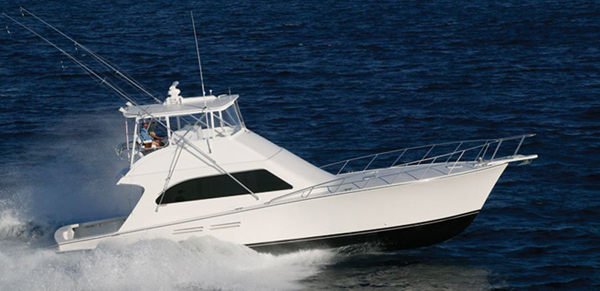 You have decided to enjoy the boating lifestyle, and like many people you ask - where do I start? This article is designed to answer many of those questions you may have.
You have decided to enjoy the boating lifestyle, and like many people you ask - where do I start? This article is designed to answer many of those questions you may have.
- Primarily plan to cruise or fish — or a combination of both?
- Need overnight accommodations — if so, for how many people?
- Need a boat designed for specific sea conditions that you might be exposed to?
- Want an express style or cabin style vessel? An express style boat allows everyone to be on the same level and makes line handling easier while a flybridge sedan vessel gives you greater interior room and better visibility from the helm.
- Want the economy of a single engine vessel or do you want the increased performance, maneuverability, and safety of a twin engine vessel?
- Want a gas or diesel powered vessel? Gas powered vessels are less expensive initially while diesel power offers superior performance, long term reliability, and safety.
- Want a new or used vessel? A new vessel will have warranties, a used vessel may offer a better value and has already been equipped but may require higher maintenance based on the age of the vessel.
- Questions specific to a sailing vessel:
- What are the vessels sailing characteristics versus interior accommodations?
- How accessible are the systems on the vessel?
- Does the vessel have adequate storage space and ventilation?
- What is the location of the traveler, is it more suitable for cruising or racing?
Now that you have established these basic parameters, one of the next steps should be to look into the other costs associated with the purchase of your new boat. Those would be financing, survey, insurance, and Coast Guard documentation, if applicable.
Boat Financing
A lender who specializes in boat loans will normally be your best source for financing your new vessel as they understand boats and are familiar with all the paperwork and documents involved. Most boat loan lenders will do a pre-approval for you which will give you the budget parameters within which you can work. This should increase your negotiating position with the dealer or seller.
The loan approval process will normally take from 24-48 hours. Loan approvals are usually good for 30-60 days from the date of approval by the lender. Note: Make sure you get a commitment in writing from the lender spelling out the details of your approval so you are aware of and understand the terms and conditions of your loan and any fees associated with the closing of the loan.
The standard terms for a boat financing loan are 15 years for boat loans of $25,000 and above, with a 20 year term being available with most lenders at $75,000 and above. Down payments range from 15-20%. You should keep in mind that the more money you put down now will allow you to be in a better equity position in the future when you want to trade up or sell your boat. It is a simple case of "Pay me now or pay me later."
If your boat has eating, sleeping, and bathroom facilities it may qualify for the second home mortgage interest deduction. You should check with your accounant and/or financial advisor to verify the details.
Survey
If you are buying a used vessel a marine survey will be required by the lender, normally when the boat is three years old or more. A prepurchase marine survey will run between $24 and $26 per foot depending on the geographic area, type and size of vessel, and other parameters. You should talk to two or three surveyors to see which one you are most comfortable with and has the most expertise in relation to the type of vessel you are purchasing. Most of our boat loan lenders require the surveyor to be NAMS or SAMS certified. We can provide you with a list of these certified surveyors, to go along with any the dealer or broker may recommend.
Insurance
Yacht insurance is a specialty field. You want an agency and company that understands boats. The coverage will be better, the policy will be agreed value and replacement cost and if you ever do have a claim they will have adjusters that actually understand boats. Costs can vary substantially depending on territory and the type of coverage you need. Dave Trostle, Vice President of Sterling Acceptance, is a licensed yacht insurance agent and would be happy to give you a competitive quote (410.268.1545 or
Documentation
Coast Guard Documentation of a vessel will be required by most marine lenders if the boat is of applicable size. This typically comes in to play with vessels that are approximately 26' and larger. This allows the bank to secure its lien on the federal level. One of the primary benefits of documentation for you as the buyer is that a title search, called an abstract of title, is done on the vessel prior to settlement to show what liens if any are outstanding on the vessel and to make sure that free and clear title can be passed to you as the buyer. We are members of the American Vessel Documentation Association (AVDA) and all of our Coast Guard documentation is done in house, not by an outside service. For more information, click here!
